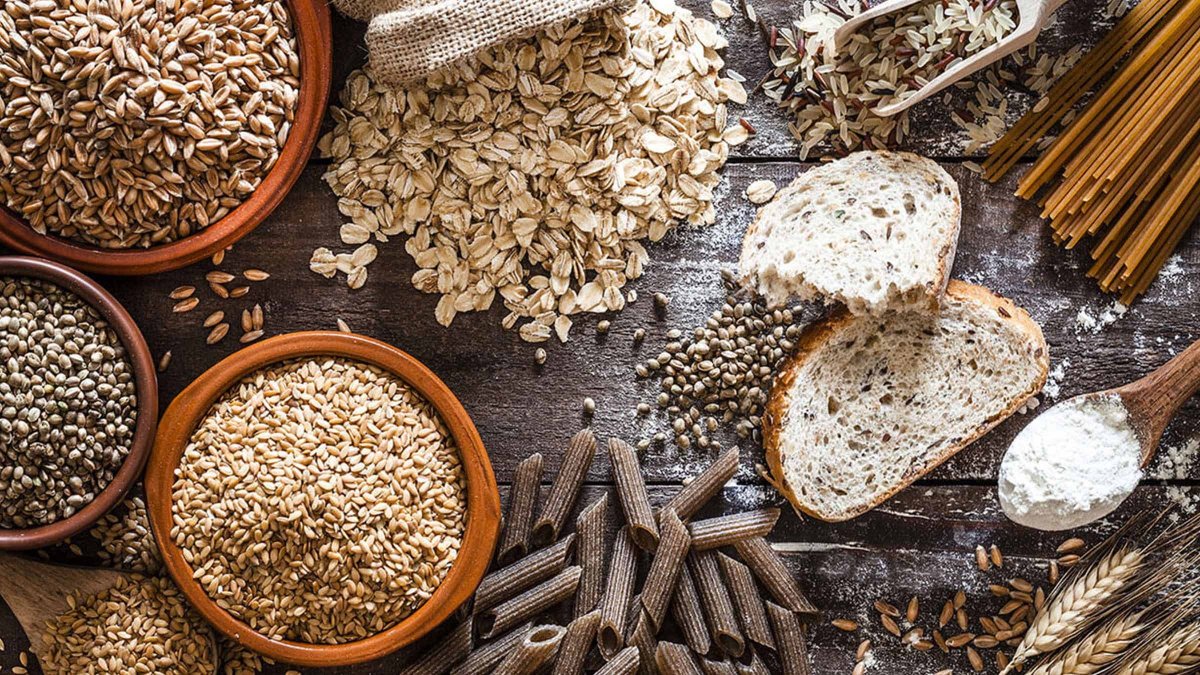Understanding the effects of dietary fibre on gut health

There are hundreds of different microbes in your gut playing different roles, growing in response to a variety of nutrients – especially dietary fibres – and producing a large range of compounds, many of which benefit health. Some microbes are essential vitamins, some promote the optimal functioning of our tissues and some inhibit the growth of pathogenic (disease-causing) bacteria. Choosing a diet that’s rich in fibre from many sources will encourage a high diversity of gut microbes and, in turn, help the microbes produce their beneficial by-products.
While the functions of many of these microbial compounds are not fully understood, it’s increasingly clear that they can influence the health of tissues of the gut and beyond. Eating lots of diverse sources of dietary fibre is expected to promote the health of the gut, the immune system, and even the skin, brain and other organs. Although your body and microbiome will take about six weeks to adjust to a high-fibre diet, on a day-to-day basis there are more obvious changes you’ll notice, such as:
1. Improved stool bulk
One general effect of an increase of dietary fibre in our diet is an increase in the bulk of material passing through you. This bulk is, in part, explained by the way dietary fibres attract and hold water, which helps ease and push food through the gut.
But did you know that a significant proportion of stool bulk is also microbes?
Gut microbes flourish and grow in the large intestine in response to some dietary fibres and other undigested nutrients. That’s why an increase in dietary fibre from a range of food sources with a variety of fibres, such as grains like BarleyMax™as well as fruits and vegetables, is likely to lead to a noticeable increase in your stool content.
This increase in stool bulk can provide you with a sense of fullness in the stomach, which will improve after going to the toilet. Stool bulk and regularity are important for diluting and removing toxins and minimising their impact on your body.
2. Gas and bloating
As you start to increase your dietary fibre intake, you may notice some gas or bloating – a totally normal response to increased fermentation in your gut. Many dietary fibres are broken down by our gut microbes within the large intestine through the process of fermentation, yielding a vast range of products used by the body and other microbes.
Soluble fibres and resistant starch (also dietary fibre) are mostly fermentable, whereas insoluble fibres are poorly fermented.
Some of the fermentation by-products are gases, which explains why you may experience flatulence when you increase your fermentable fibre intake. This may cause some discomfort as the gas creates slight swelling in the gut. But don’t worry, this is only temporary while your body adjusts to the amount and type of fibre in your diet.
You could consider gradually increasing your dietary fibre to help minimise these effects. But don’t forget that wind is a normal part of gut function. Gas also helps to move your digested food through your gut, so it’s all part of the process.
How much fibre should I be consuming?
If you’re usually consuming a low-fibre diet, it’s better to gradually increase your dietary fibre intake over time to help your gut adjust to the change. Increasing fibre by too much too soon can make you feel bloated, or too full but this is temporary. You can avoid this feeling by slowly increasing your intake, adding 3-5g of dietary fibre every two days until you reach your target. On the flip side, if you’re consuming around 25-30g each day and only need to increase dietary fibre by 5-10g, you can easily do this in a day by adding 50g of passionfruit pulp to a yoghurt (7g fibre) or having half a cup of green peas (fresh or frozen) at dinner (5g fibre).
 This article was written by Dr Michael Conlon
This article was written by Dr Michael Conlon
Dr Michal Conlon is a principal research scientist at CSIRO Health and Biosecurity Business Unit in the Food and Nutrition Program. He holds a PhD in biochemistry from the University of Adelaide and has more than 30 years’ experience in investigating the impact of foods and diets on physiological processes and health outcomes by conducting pre-clinical and clinical research trials. A focus of Dr Conlon’s work has been on understanding the effects of dietary components such as fibre, resistant starch, proteins and oils on gut physiology, as well as other tissues and systems of the body. The work has also involved investigating the roles of microbes such as bacteria in mediating the effects of diet on the large bowel, including studies to investigate or develop prebiotic fibres and probiotics. Dr Conlon has been instrumental in conducting a series of research activities which have shown that the inclusion of resistant starch and fibres in the diet can help protect against the toxic effects of poor ‘western’ diets on the large bowel. This included demonstrating that resistant starch can reduce the risk of tissue damage which may contribute to serious diseases of the colorectal region. This vast body of research has also demonstrated the important role of fermentation by gut microbes in producing short chain fatty acids (SCFA) which help to maintain a healthy environment within the large bowel. Dr Conlon has continued to apply his research to understanding and helping prevent adverse health conditions such as inflammatory bowel disease and colorectal cancer. He also has a keen interest in developing new foods and nutraceuticals with gut health applications from under-utilised resources.
